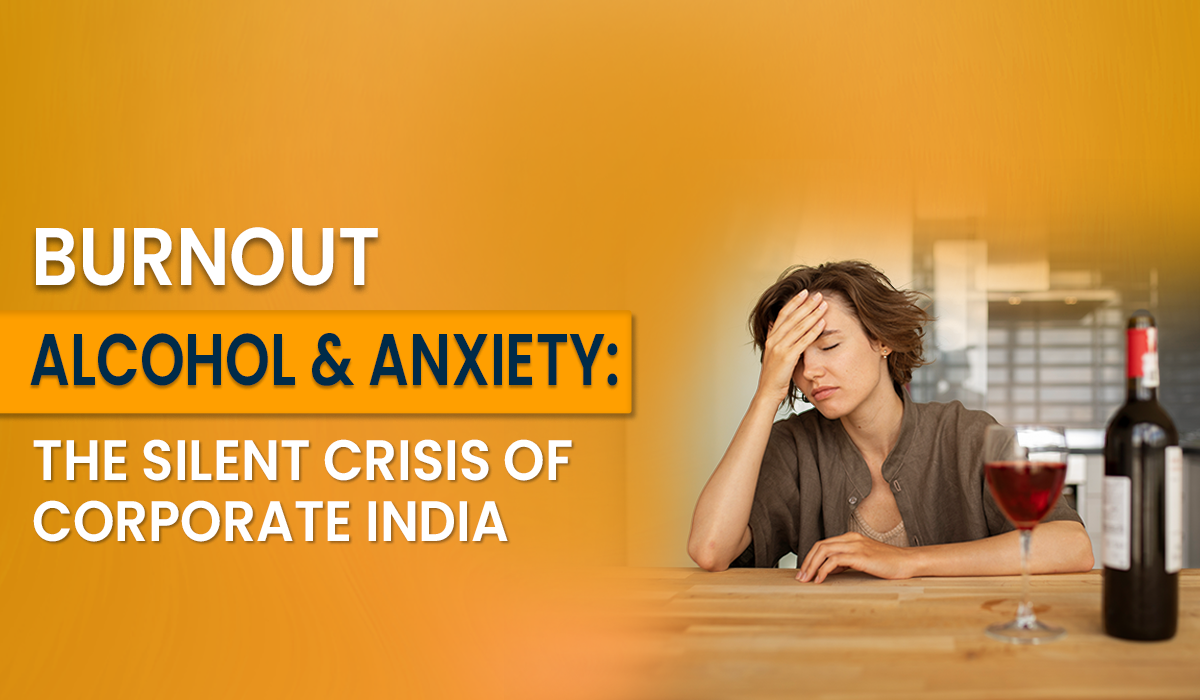Methamphetamine, otherwise known as meth, is one of the most potent and dangerous drugs in use today. This stimulant profoundly affects the central nervous system by providing a sudden rush of feelings of elation, enhanced energy, and extreme concentration. The problem is, these effects do not last long, and the extremely addictive quality of methamphetamine results in devastating consequences for the person using it.
It makes all the difference between early intervention and treatment, knowing about methamphetamine addiction and being able to recognise signs and symptoms of addiction.
This comprehensive guide looks at the nature of methamphetamine addiction, the physical, psychological, and behavioural signs that indicate someone is in trouble with it, the dangers of methamphetamine abuse, and the treatment options available for those who are addicted to this dangerous substance. Some good recovery centres like Athena Luxus can be approached.
What is Methamphetamine?
Methamphetamine is a synthetic drug categorised as a stimulant. Chemically, methamphetamine is related to amphetamine, though the former’s potency is much higher. The drug comes in powder or pill form and in crystalline structure. In most cases, the crystalline structure is the most common form, which is known as “crystal meth,” that can be smoked, snorted, injected, or swallowed.
When administered, methamphetamine boosts the levels of dopamine—a neurotransmitter associated with mood, motivation, and pleasure—in the brain, hence resulting in a peak of great euphoria and alertness. However, this too has a very short half-life, and after it disappears, the crash causes people to binge again and try to prolong the effects of this drug but, in doing so, eventually become addicted.
Methamphetamine’s Highly Addictive Nature
Methamphetamine is a highly addictive element. When administered, it produces an intense and immediate high followed by a rapid decline in mood and energy. The cycle of euphoria followed by a “crash” leads users to take the drug again and again to avoid the uncomfortable feelings of withdrawal. Over time, the brain becomes dependent on the drug to function normally, and the user develops a tolerance, requiring higher doses to achieve the same effect.
This cycle of use, tolerance, and withdrawal creates a very strong physical and psychological addiction. Methamphetamine perhaps is one of the most difficult drugs to quit because of this constant cycle. Unlike other drugs, the intense euphoria that methamphetamine delivers is so overwhelming that people may continue to use it even when they are well aware of the devastating consequences.
Identifying Methamphetamine Addiction Symptoms
1. Physical Symptoms
Weight loss: Methamphetamine is an appetite suppressant. The users end up losing a lot of weight very quickly. Chronic users become emaciated and look unwell.
Dental conditions (“Meth Mouth”): Severely decayed and diseased gums are perhaps the most glaring physical sign of meth addiction. This is known colloquially as “meth mouth” and is due to dry mouth and a reduction of saliva production, which comes from the effects of this drug, coupled with poor dental hygiene and compulsive grinding of the teeth.
Skin sores and pick marks: Methamphetamine users tend to develop scabs, sores, or open wounds on their skin, mostly on the face and arms. These sores result mainly from a user’s action of picking at their skin due to hallucinations or heavy itching by the drug.
Dilated pupils: The pupils are dilated or enlarged due to the use of methamphetamine, which is one of the more evident signs of meth use.
Increased heart rate and blood pressure: Methamphetamine increases heart rate and blood pressure, leading to some serious cardiovascular problems that may be as bad as heart attacks, strokes, and more.
2. Psychological Symptoms
Paranoia and hallucinations: Among the most defining symptoms of methamphetamine addiction are paranoia and hallucination. A user may develop a delusion that others are following, watching, or targeting them, even when this is not possible.
Violent and aggressive actions: Methamphetamine is capable of leaving its users to feel irritated, aggressive, and, at times, violent, leading to physical fights with other individuals.
High mood swings: Abusing meth produces very fast changes in moods from extreme euphoria to deep depression and even irritation.
Anxiety and depression: Long-term methamphetamine abuse results in anxiety and depression. Such effects can persist even after someone has stopped using the drug and can significantly affect an individual’s lifestyle.
3. Behavioural Symptoms
Obsessive behaviour: Meth addicts are usually obsessed with activities or tasks like cleaning, organising, or even the same action over and over, like scratching or picking at their skin.
Compulsive drug-seeking behaviour: The methamphetamine user will go to extreme measures to obtain the drug, such as lying or stealing or doing anything illegal. All of this leads to legal issues and also damages relationships with family and friends.
Social isolation: The addicts will avoid social interactions and spend most of their time either in isolation or with fellow users when on methamphetamine.
Inability to stop using: Even though they know the drug use is affecting their lives, some will be unable to stop, a fact that is attributed to how strong the addiction is. They are no longer in control of their judgement and impulse control.
The Risks of Methamphetamine Addiction
Cardiovascular problems: Methamphetamine use can cause heart attacks, arrhythmias (irregular heartbeats), and strokes. Long-term use can also lead to heart disease, damage to blood vessels, and other cardiovascular complications.
Neurological damage: Chronic methamphetamine abuse results in serious neurological damage, including cognitive impairments, loss of memory, and altered behavior. In some instances, the damage is irreversible, and some users will remain with long-term effects even after they have stopped the drug.
Psychotic disorders: The chronic use of the drug leads to psychotic disorders like delusions, hallucinations, and disorganised thinking, depression, anxiety, and permanent psychosis.
Overdose: Since it elevates heart rate and also blood pressure, there is a big likelihood that the person may overdose, leading to death. Symptoms for overdosing include seizures, stroke, extreme agitation, and unconsciousness.
Treatment of Methamphetamine Addiction
1. Detoxification
Detoxification is the first step to administer when involved with methamphetamine addiction; it means letting the body detoxify. Detoxification must be carried out with a doctor since withdrawal of methamphetamine is severe and may cause hazardous results. Some symptoms experienced through detoxification include depression, keen craving, and fatigue, among others.
2. Behavioural Therapy
Behaviour therapy is still a basis in the treatment of addiction to methamphetamine. Cognitive behavioural therapy is the best kind of therapy in treating addiction to methamphetamine.
This is very effective because it helps a person come to the conclusion that there are negative thought patterns and other poor behaviours that lead to the occurrence of drug addiction. In addition, this therapy teaches the patient some forms of coping in the management of stress, craving, and triggers of relapse.
3. Support Groups
Support groups like Methamphetamine Anonymous (MA) enable someone to share his life history with others who are passing through the same experience. The groups help in keeping motivation and encouragement not to indulge in drug intake again.
4. Inpatient Rehabilitation
For individuals with severe methamphetamine addiction, inpatient rehabilitation programs may be necessary. These programs provide 24/7 care in a controlled environment, allowing individuals to focus on their recovery without the distractions and temptations of everyday life.
5. Long-Term Recovery and Aftercare
Recovery from addiction to methamphetamine is a chronic process. Even after availing themselves of inpatient treatment programs, an individual has to continue visiting therapy, counselling, support groups, and other aftercare services to avoid relapse. Besides, strong support networks built up by engaging in healthy exercises and hobbies are also important for not relapsing.
Treat Methamphetamine Addiction in Delhi NCR
There are many methamphetamine drug addiction treatment centres in Delhi NCR for people addicted to methamphetamine. These centres provide detoxification, inpatient rehabilitation, outpatient programs, and therapy. It is very much necessary to take professional help from a methamphetamine drug addiction treatment centre in Delhi NCR to win over addiction and start a new life.
While the immediate effects of methamphetamine use are alarming, the long-term effects can be even worse. Methamphetamine can permanently damage the brain and the body, affecting nearly every organ and system. Cognitive and emotional problems persist after users stop taking the drug.
Cognitive Impairment and Brain Damage
Long-term use of methamphetamine can be considered one of the most devastating impacts that this substance makes on the brain. Depletion of dopamine, the neurotransmitter crucial for motivating a person, causing happiness, and for controlling physical movement, results from it.
Gradually over time, the brain would have stopped producing such a large quantity of dopamine and could ultimately result in depression, an inability to remember, and disinterest in regular activities of life.
Research shows that long-term use of methamphetamine results in structural changes in the brain and causes damage to parts of it that are involved in memory, decision-making, and emotional regulation.
Damage to these parts can lead to cognitive impairments, for example, the inability to focus, problem-solve, or process information. People addicted to methamphetamine for many years often report feeling “mentally foggy” and cannot focus on a task even after they quit using the drug.
Psychological Effects and Mental Health Disorders
Anxiety: Users of methamphetamine for a long time suffer from extreme anxiety, especially when they are not using the drug. The anxiety is so high that it can interfere with normal life activities.
Depression: Methamphetamine addiction often causes depression, and this can be enhanced by the psychological impact of the addiction. The drug tends to interfere with the brain’s reward system, making it hard for people to experience joy or satisfaction when they engage in activities that formerly made them happy.
Psychosis: Possibly the most hazardous psychological impact of methamphetamine is psychosis that develops. This can involve hallucinations, delusional thinking, and in some cases, completely breaking off from reality. Methamphetamine-induced psychosis may include extreme paranoia and extreme behaviours where users might take on dangerous situations. In some instances, such psychosis can continue even after the drug has stopped being used.
Aggression and Violence: The activation potency of methamphetamine could influence people to become easily annoyed and impulsive, leading possibly to violent behaviours and even aggressive actions. In regards to interpersonal relationships and social life, it raises various serious personal as well as legal issues.
The effects of methamphetamine addiction do not only surface at the individual level of using the drug but also affect friends, family, and even loved ones. Methamphetamine addiction rips relationships between the two partners, parents, children, and so on, leaving divisions that would be difficult to close down in society.
The compulsive behaviours of methamphetamine addiction include lying, stealing, or manipulation of things that even the closest people end up isolating them.
It becomes more complicated because family members are caught in the cycle of enabling and resentment. The erratic behaviour of the addict, along with the stress of watching a loved one spiral deeper into addiction, can cause emotional burnout and complete estrangement from the addict in many cases.
Other complications towards seeking help are stigmas attached to methamphetamine use. Most of the abusers feel shame that avoids them from looking for the help since they fear one can judge or reject them.
Financial Ramifications
The financial cost of methamphetamine addiction can be devastating. Methamphetamine is an expensive drug, and often it costs a lot to keep up the habit. Though the cost of the drug itself is high, additional expenses, such as medical treatment because of health problems, legal fees, and damage to property or relationships, can be overwhelming.
As the addiction advances, it will be impossible for these individuals to hold a steady job since the cognitive and psychological changes resulting from the drug lead to poor work performance.
More often than not, they lose income that would otherwise worsen their situation as they try to care for themselves or their families. In most cases, methamphetamine users will become homeless or in uncertain situations, thereby aggravating their financial as well as personal deteriorating condition.
Treatment of Methamphetamine Addiction
1. Inpatient Treatment Programs
Inpatient centres ensure the 24/7 care and supervision in a structured setting that is most useful for persons with severe addiction to methamphetamine. Such programs offer an environment free from drugs and substances where persons can begin the detoxification process under the care of physicians and therapy services.
Inpatient rehabilitation usually incorporates the following:
Detoxification: The physician will stay with the patient through the withdrawal stage by giving the patient drugs and interventions that will reduce the appearance of symptoms and ensure the safety of the patient.
Therapy and Counselling: CBT is provided among other therapy interventions to help the individual deal with psychological issues that contributed to the addiction. Therapy also promotes healthier ways for an individual to deal with the condition.
Support Services: Support services further support inpatient programs, which mostly include vocational training, family therapy, and life skills coaching to help the patients return to society and resume their lives after treatment.
2. Outpatient Treatment Programs
Outpatient treatment programs are meant for patients who do not require constant doctor supervision and require continued therapy and support. Flexibility is the nature of these programs, which allow a person to receive treatment while still being able to maintain his or her lifestyle and home or sober living environment.
Outpatient treatment is also an option for those in early recovery or those who have been through inpatient rehab but need a little more support. The most commonly offered services among these include individual therapy, group therapy, and education on relapse prevention and addiction management.
3. Medication-Assisted Treatment (MAT)
There are no FDA-approved medications available for the treatment of methamphetamine addiction; however, researchers are developing other medications that can reduce both cravings and withdrawal symptoms.
Several medications have been found to be useful in clinical trials in the management of methamphetamine use, among which bupropion, an antidepressant, and modafinil are stimulants used in the treatment of narcolepsy.
Although these drugs do not cure addiction, they are still important in the process of helping to control cravings and stabilise mood in the recovery process.
4. Behavioural Therapy
A central element in treating methamphetamine addiction is behavioural therapy. The most common applied therapy is cognitive behavioural therapy (CBT), which aims at assisting the patient to realise unhealthy thought patterns and behaviours responsible for his addiction. In CBT, he is trained to replace such undesirable thought patterns with healthier adaptive behaviours.
Contingency management is another form of therapy that employs rewards to encourage sobriety. Incentives for staying drug-free are offered to the patients, such as vouchers or prizes, which enhance motivation during the recovery process.
Conclusion
Methamphetamine addiction is a complex and devastating disorder that affects millions of people in the world. Nonetheless, identification of the symptoms and signs of methamphetamine addiction would be the initial step for seeking help and beginning along a road of recovery. Treatment, however difficult, is available for the people addicted to methamphetamine.
If you or someone you know is struggling with an addiction to methamphetamine, professional help is crucial. With the right treatment, support, and commitment, it is possible to break free from addiction and embrace a renewed, purposeful life. Athena Luxus, one of the leading recovery treatment centers in the Delhi NCR area, offers personalized care and support to help individuals achieve lasting sobriety. Take the first step toward recovery today email us at customercare@athenabhs.com or call us at +91 9718921212. We’re here to help you reclaim your life.



